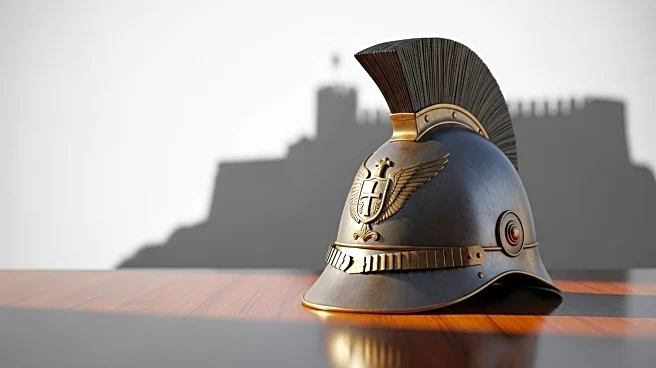What's Happening?
The House of Representatives has passed legislation that could rename Fort Benning in Columbus, Georgia, back to Fort Moore. This move would reverse a decision made during the Trump administration, which had restored the name Fort Benning. The proposed change is part of a broader defense spending bill and aims to honor Lt. Gen. Hal Moore and his wife, Julia Moore, for their contributions to the military and support of military families. The name change is seen as a way to provide a positive example for soldiers and their families, reflecting the values and legacy of the Moores.
Why It's Important?
The renaming of Fort Benning to Fort Moore is significant as it reflects ongoing efforts to address historical associations with Confederate figures. The original naming after Henry Benning, a Confederate general, has been controversial due to his pro-secessionist views. The proposed change aligns with broader initiatives to remove Confederate names from military installations, promoting inclusivity and honoring individuals who have made significant contributions to the military. This decision could impact military culture and public perception, fostering a more inclusive environment that recognizes diverse contributions to the nation's defense.
What's Next?
The Senate must approve its version of the defense bill, and lawmakers from both chambers will need to negotiate a compromise before a final vote. If the renaming is approved, the military will undertake logistical changes, including updating signage and uniforms, which could incur significant costs. The decision may also prompt discussions on the renaming of other military bases, influencing future policies on how military installations are named and honored.
Beyond the Headlines
The renaming of Fort Benning to Fort Moore highlights broader cultural and ethical considerations in how historical figures are commemorated. It raises questions about the legacy of Confederate symbols in public spaces and the importance of recognizing individuals who have positively impacted military history. This development could contribute to ongoing debates about historical memory and the role of public institutions in shaping cultural narratives.









